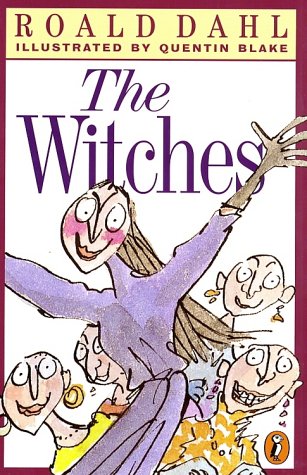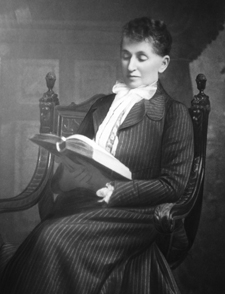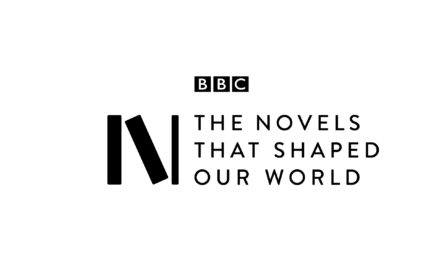As the BBC publishes its list of 100 English-language titles which have shaped our world, Emma Schofield takes a moment to delve a little deeper into the panel’s selection and wonders where the Welsh writers are in BBC’s 100 Page-Turners.
‘Lists are a form of power’, wrote A.S. Byatt in her 1978 realist novel The Virgin in the Garden, perhaps a fitting point from which to start an analysis of the BBC’s freshly published list of 100 page-turners. Although, ironically, Byatt herself is notably absent from the BBC’s list of novels that shaped our world.
It is a list which will no doubt garner much attention as it is debated in the coming days, so perhaps it is fair to say that such a list does hold a form of power, but that power also comes with a healthy side order of accountability. Every time a list is compiled which seeks to categorise the books we read and how we look at those books and their authors, it contributes to a continual re-shaping of our whole culture of reading. Don’t get me wrong, I am all in favour of the BBC’s planned year-long celebration of reading and we are reminded that this list is intended to spark debate. Certainly those who wish to get involved and share stories of books which have been important to them are encouraged to do so on social media, using the hashtag #mybooklife.
Yet, inevitably, any list includes an element of choice and those choices can be difficult. Such difficulties present a problem that those compiling the list have evidently encountered as the finished version includes a number of trilogies and series, all listed in their entirety, thus avoiding the need for the panel to select the best from within each sequence. It would, arguably, have made for a stronger list to see novels from within these sequences selected for their own individual merits. But quibbles over whether or not trilogies and sequences should have been included in their entirety aside, a careful reading of the list raises some other questions which perhaps require further attention.
Where is Wales?

A quick glance at the list reveals that only one Welsh writer has been included in the BBC’s selection, Roald Dahl, for his 1983 work of children’s fiction, The Witches. Yes, you did read that correctly; the only Welsh contribution to the BBC’s list of 100 page-turners is via a children’s book authored by someone who spent the majority of his life living outside of Wales. It’s a wonderful book and one which many of us will have enjoyed as children, but it hardly seems like an adequate representation of Wales’ contribution to literature on a global platform. There is a further tenuous connection to Wales in the form of Phillip Pullman who spent around ten years living in North Wales as a child and has offered significant to support to the Welsh literary scene in recent years, but to categorise Pullman as a Welsh writer would seem like a stretch.
The list is diverse, there is no doubt about that; there are authors from across America, Ghana, India, Nigeria, Pakistan and Turkey amongst others, but among the British representation, Welsh entries appear to be sadly lacking and this is disappointing. While Scotland is, at least to some extent, represented within the list, Wales appears to have been broadly overlooked.
The reasons for the lack of Welsh representation may be, in part, due to the composition of the panel making the final selection of books for this lengthy list. No Welsh figures were included in the Panel, which has a decidedly English weighting. The balance of nationalities on the panel is, of course, not an excuse for which books do or don’t find themselves included in such a list. In an ideal world novels by Welsh authors of such significance should be able to stand on their own and not need a Welsh patriot to champion them on a British or international platform, but we know that that particular ideal is often very different from reality.

The truth is that there are writers from Wales who could, perhaps even should, have been included in a list of this nature. Sarah Waters, for example, does not feature anywhere in the list, in spite of the fact that her bestselling books have contributed so much to bringing lesbian characters into mainstream fiction and, subsequently, media in recent years. This problem applies doesn’t only apply to contemporary fiction, jump back a century and authors such as Allen Raine are also missing from the list. Raine’s omission notable in spite of her remarkable market-appeal and the fact that her novels sold millions of copies across Britain in the late Victorian/early Edwardian era. Of course not everyone can be included in such a list, but to see so few Welsh writers featured on this list is worrying.
What does the list have to say about gender?
Concerns over how Wales is represented aside, that’s not to say that there’s nothing good about the BBC’s list. A quick round of number crunching reveals a very equal gender balance across the list as a whole, with a total of 51 female authors included, as opposed to 49 of their male counterparts. So far so good; but apply the same approach to the individual categories which make up the list and the figures start to break down.
While the categories for ‘Identity’ and ‘Love, Sex and Romance’ are dominated by female writers, both at a ratio of 8:2, women are heavily outnumbered in some of the other categories. The list of novels entitled ‘Adventure’, due to be featured in March, contains a total of 9 male authored-novels, with just 1 female entry selected. Similarly, April’s ‘Life, Death and Other Worlds’ is comprised of 7 male-authored texts, compared to just 3 by female writers. Take a step back and look at these figures from a distance and an all too familiar pattern starts to emerge:
Female writers dominate the group in four categories:
– Identity
– Love, Sex and Romance
– Coming of Age
– Family and Friendship
Male writers also dominate in four categories and these are:
– Adventure
– Life, Death and Other Worlds
– Class and Society
– Rule Breakers
*The categories of ‘Politics, Power and Protest’ and ‘Conflict and Crime’ are excluded from the above as they are equally balanced.
What’s concerning about these divisions is that novels by male writers appear to be dominant in categories which in the past, would traditionally have been more closely associated with the male-sphere. We need to move beyond that. There is no reason why, in 2019, only one of the novels chosen as the most compelling reads in the ‘Adventure’ category should have a female author. Equally, there is no reason why male authors should not feature more strongly in the ‘Love, Sex and Romance’ grouping. Perhaps then the list is symptomatic of a wider issue with how we categorise novels and a poignant reminder that we still need to do more to ensure parity across the bookshelves.
Playing it safe?
One of the positive features of the BBC’s list is its broad remit, spanning three different centuries of publishing. Here again, however, there are some perplexing trends. While books in the ‘Adventure’ category are split roughly equally between pre-1980 and post-1980 publication, the books in the ‘Identity’ category tell a different story with a decisive 8 out of 10 novels in this group having been published since 1980.
Sure, the novels included here have much to contribute to discussion about identity and how that is perceived in literature, but it would have been great to see some wider choices in this category. Alison Bechdel’s graphic memoir exploring issues surrounding LGBTQ identity, Fun Home (2006), would have made for a really refreshing addition to this category, while James Joyce’s seminal exploration of male identity and sexuality, A Portrait of the Artist as a Young Man (1916) is also surprisingly absent. It feels as if there could have been space for more texts like these within the list, novels which paved the way for other writers to follow; books which broke down barriers and had a real part to play in shaping the lives of those who read them. Yes, the BBC list may be lengthy, but it is far from comprehensive. At heart, it is still a safe list and one which feels just a bit too comfortable for today’s society.
Emma Schofield is a writer and contributor for Wales Arts Review.
_______________________________________________________________________
Recommended for you:











